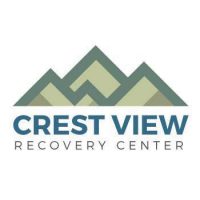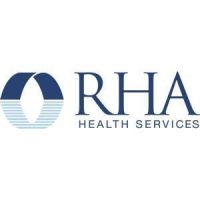Unity Healing Center
Drug Rehab Center in Cherokee, North Carolina
- Opioid Addiction
- Dual Diagnosis
- Alcoholism
The Unity Healing Center is a drug rehab facility in Cherokee, North Carolina offering comprehensive treatment programs for alcohol and opioid addiction, dual diagnosis, and various levels of care, accepting private health insurance and dedicated to helping patients achieve sobriety.
About Unity Healing Center in North Carolina
Unity Healing Center in Cherokee, North Carolina is a state-licensed and accredited substance abuse and addiction treatment facility. It provides comprehensive inpatient, dual-diagnosis, and sober-living/halfway levels of care for those struggling with alcohol and opioid addiction. The facility specializes in providing the highest standard of evidence-based treatments and holistic therapies for individuals struggling with substance-use issues. It is certified by the Substance Abuse and Mental Health Services Administration (SAMHSA), a branch of the U.S. Department of Health & Human Services (HHS).
Unity Healing Center offers a range of services to help individuals on their journey to recovery, including evidence-based psychotherapies, holistic therapies, recreational activities, 12-step programs, and dual-diagnosis treatment. Its comprehensive programs are tailored to meet the unique needs of each patient, addressing the physical, psychological, emotional, social, and spiritual aspects of their addiction. In addition, the facility offers 24/7 medical supervision as well as a variety of lifestyle- and spirituality-focused support groups. The facility also accepts private health insurance.
Genders
Ages
Modality
Additional
Conditions and Issues Treated
Opioid addiction has become a significant health problem in the United States. In 2015, there were 91 opioid overdose-related deaths per day, with a substantial increase in mortality rate in 2014.
When opioid addiction has reached a point where a person’s life becomes unmanageable, treatment options are available to help them get sober. Treatment that includes medical care with medications and counseling can help a user transition into sobriety.
When someone in struggles with both addiction and mental or emotional illness, this is considered a dual diagnosis. Dual diagnosis treatment can include therapy for these issues to happen simultaneously, which will allow either of them to be treated effectively.
Sometimes people who have suffered from addiction disorder also suffer from co-occurring disorders such as depression, anxiety, bipolar disorder, etc., making them “dual diagnoses.” Dual diagnoses require specialized treatment programs where drug and alcohol addiction are addressed along with psychiatric illnesses. Some rehabilitation facilities provide patients suffering from cooccurrences a program with highly integrated services and a clean environment with few distractions to help them succeed.
Levels of Care Offered
This center offers a variety of custom treatment tailored to individual recovery. Currently available are Dual-Diagnosis, Inpatient, Sober-Living / Half-Way, with additional therapies available as listed below.
Inpatient treatment for alcoholism or drug addiction is an option that provides the addict with a supportive environment in which they can stop using. After detox, an inpatient treatment center provides a structured environment for the addict to recover from their addiction and begin taking steps toward a lifetime of sobriety.
This type of treatment is appropriate for addicts that are most in need of intensive care and supervision. This includes those who were unable to quit on their own, those who need more structure than they can get in outpatient treatment, and those whose addiction has led them into legal trouble or severe health problems.
Sober living homes, also known as halfway houses, provide recovering people with a structured drug-free environment to live in that bridges inpatient rehab and the much less structured world of outpatient rehab. Sober living homes offer a person early in recovery the opportunity to practice recovery skills in a safe environment.
The atmosphere in sober living homes is less restrictive than in an inpatient facility. Members have to follow many rules, including not drinking and using drugs and paying rent and bills. There is no limit to the period of stay. As long as you stay, you should follow the rules because it’s the opportunity for individual and group sobriety.
Therapies & Programs
Because no single treatment is effective for all addicts, the goal of treatment and therapy should be to figure out what works best for each individual. Tolerance and withdrawal levels differ from person to person, affecting the treatment intensity required. Addiction treatment should aim to help addicts develop healthy coping mechanisms for dealing with their addiction and its underlying causes.
Family therapy is beneficial for people who are in addiction treatment services because it offers addicts the opportunity to work with their family members to better understand what led them to make choices that contributed to their addiction.
This type of therapy helps family members reach a deeper understanding of how they can best support their loved one during recovery. It also helps the addict better understand their own motivations and triggers that led them to turn to substance abuse.
Family therapy can help addicts in the following ways:
- Assists family members in processing difficult feelings so they don’t blame or resent recovering addicts
- Assists family members in understanding how addiction has impacted the addict and everyone who is involved with them
- Allows the addict to take responsibility for their actions, while encouraging improved communication skills
- Helps family members understand how to best support an individual in recovery so addicts don’t relapse again.
Group therapy can help build a stronger support system and give addicts in Cherokee, NC insight into their addiction that they gain through shared conversations. Group therapy occurs in a controlled group environment, exclusive of one on one meetings. This makes it safer for patients to feel comfortable sharing the struggles they’re going through and gaining perspective.
Trauma therapy is beneficial for people who are recovering from drug addiction because it helps them heal from past traumas that may have caused them to turn to harmful substances or led them to experience negative emotions that contributed to their destructive behaviors.
This type of treatment works by processing difficult experiences so individuals can learn how to process these events without having to turn to substances for coping.
Trauma therapy can help addicts in the following ways:
- Helps individuals understand their experiences and emotional responses to difficult events, including why they turned to drugs or alcohol
- Provides them with comfort and support while working through difficult emotions related to these traumatic experiences
- Offers an opportunity for addicts to have a voice and be heard, which can improve their self-esteem
- Can help them develop coping skills so they can better respond to triggers instead of turning to substance abuse.
Cognitive-behavioral therapy is a technique that is used to help people with addiction. Specifically, it is a way of identifying thoughts and behaviors that cause the addiction. It is typically used in an individual counseling session.
The content explains cognitive behavioral therapy and how it works to address some behaviors that may be leading to unintended consequences in their life, as well as its benefits for those seeking sobriety.
It works by helping people to talk through their issues and addressing the thoughts that cause said behaviors. It is an excellent way of learning about oneself and one’s perception of the world.
Addicts seeking sobriety can find quick results with Rational Emotional Behavior Therapy. This type of counseling offered by Unity Healing Center replaces negative and self-limiting thoughts with positive and productive behaviors. This allows addicts to move forward without having to deal with ongoing treatment throughout their lives. Individuals who are seeking sobriety can find quick results with Rational Emotional Behavior Therapy.
Payment Options Accepted
For specific insurance or payment methods please contact us.
Is your insurance accepted?
Ask an expert, call (888) 674-0062
Additional Details
Specifics, location, and helpful extra information.
Cherokee, North Carolina 28719 Phone Number(828) 554-0500 Meta DetailsUpdated November 25, 2023
Staff Verified
Unity Healing Center Patient Reviews
There are no reviews yet. Be the first one to write one.
Cherokee, North Carolina Addiction Information
North Carolina ranks 29th in the nation for overall substance abuse. Many of the drugs abused in the state are illicit, and many of these are opioids. Prescription opioids are readily available due to the high rates of medical workers prescribing them. The number of prescriptions has increased tenfold since the 1980's. Opioid overdoses are the most common type of death in North Carolina.
Treatment in Nearby Cities
- Boone, NC (105.2 mi.)
- Williamston, NC (352.8 mi.)
- Old Fort, NC (64.8 mi.)
- Hudson, NC (105.5 mi.)
- Havelock, NC (365.1 mi.)
Centers near Unity Healing Center
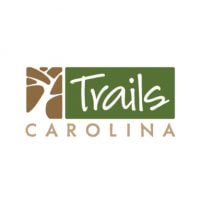
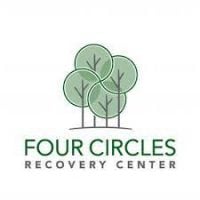
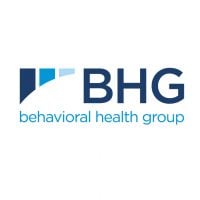
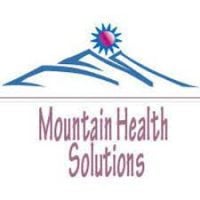
The facility name, logo and brand are the property and registered trademarks of Unity Healing Center, and are being used for identification and informational purposes only. Use of these names, logos and brands shall not imply endorsement. RehabNow.org is not affiliated with or sponsored by Unity Healing Center.


